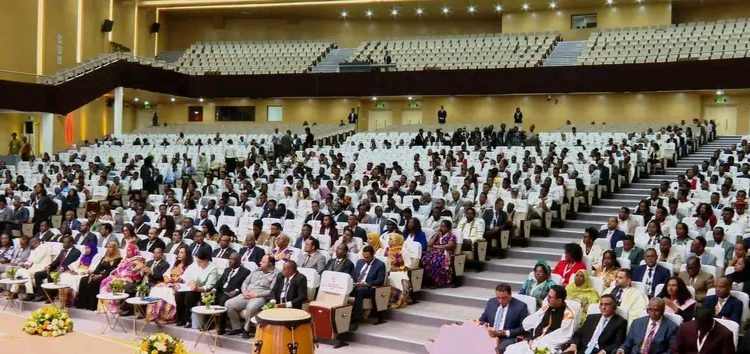Panelists stress need for transformative education to empower, enlighten African youth
Addis Ababa, April 4, 2025 (FMC) — Panelists at the Pan-African Youth Leadership Summit in Addis Ababa have underscored the urgent need for transformative education as a means to empower and enlighten African youth in the rapidly changing global landscape.
The panel discussion highlighted the crucial role that education plays in shaping the future of the continent and its young population.
More importantly, it focused on rethinking on quality education practices in Africa as the continent faces various challenges such as economic inequality and rapid technological advancements, emphasizing on transformative education in playing a pivotal role in preparing African young people for the future.
Among the panelists, Malawi National Youth Council Executive Director, Rex Chapota, said the current educational curriculum across Africa must evolve to better serve the needs of young people.
He underscored the importance of adopting a transformative approach to education that not only imparts knowledge but also fosters empowerment and critical thinking among the youth.
Moreover, the executive director stressed the integration of African indigenous knowledge into national educational curricula as a critical component of transformative education.
On her part, Under-Secretary-General for the Organization of Southern Cooperation, Professor Hirut Woldemariam, echoed Chapota’s sentiments, stating that the responsibility for providing quality education should not rest solely on governments.
While governmental initiatives are crucial, she added that a collaborative effort involving various stakeholders including private sectors and civil society, is essential for achieving educational excellence.
She pointed out that creating conducive environment for youth is vital for unlocking opportunities that enhance quality of education.
The professor cautioned that mere access to education does not guarantee quality, stressing the need for systemic changes to ensure that educational institutions are equipped to meet the diverse needs of learners.
Moreover, the under-secretary-general also pointed out that the incorporation of local knowledge systems can help preserve cultural heritage while providing relevant educational content that resonates with the experiences of African youth.
Namibian Commonwealth Youth Representative for Africa, Rosy Schaneck, urged for the exploration of emerging digital opportunities as a means for youth to enhance their knowledge and skills, highlighting the importance of leveraging technology to broaden access to information and learning resources.
Furthermore, she noted the necessity of preserving cultural identity while engaging with modern educational approaches that a balance must be struck between adopting new knowledge and maintaining the rich cultural heritage that defines African societies.

